Improving Public Participation in the Environmental Impact Assessment Process in Mining
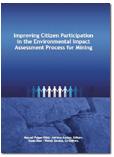


Harnessing Consumer Power: Using Certification Systems to Promote Good Governance explores how certification mechanisms that have been used previously to promote environmental and social sustainability can be applied to advance transparent and democratic government processes, reduce corruption, and promote peace. Certification systems may be designed to directly cut off major sources of revenue for armed conflict or to indirectly improve environmental and social sustainability such as ecotourism certification. Highlighting the current international certification systems for
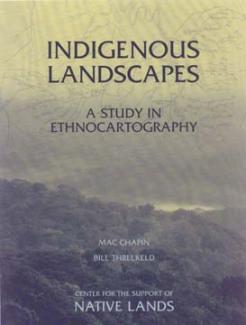
In 2001, Native Lands published this detailed case study/manual of the participatory mapping it jointly organized in Honduras, Panama, and Bolivia.
This is a detailed account and analysis of the road Native Lands followed to devise and fine-tune the methodology it has been using since 1992. The narrative takes the reader from imperfect, sometimes confused beginnings to a much surer sense of what works and what does not, how community participation can be maximized, what to eliminate, and what to add, strengthen, and bring into focus.
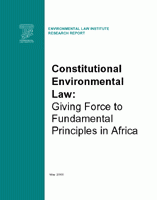
This research report explores how African constitutional provisions can be utilized to create real, enforceable environmental rights. African countries do have different legal traditions, namely, common law, civil law, and Islamic law, as well as some hybrid systems. Nevertheless, these legal systems share many common underlying principles and values, particularly fundamental human rights that are embodied in their respective constitutions.
Based on the author's experience helping to organize the Intergovernmental Panel on Climate Change (IPCC) and representing the United States at IPCC meetings, the report sets forth an approach to formulating a convention that is designed to gain acceptance by all the key countries. The suggested formula combines a set of initial targets for greenhouse gas emission reductions with an assessment process and a requirement that individual countries prepare national or regional strategies for addressing the problem.
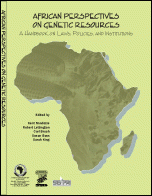
Researchers developing innovative solutions to some of the world's most pressing problems - disease, hunger, and poverty - rely on access to genetic resources. Regulating the conservation, use, and exchange of these resources - who has access to them under what circumstances, who has the right to benefits accrued through their use, how they are conserved - is a complicated process, and many nations lack adequate laws and policies. This book examines how 12 African nations are meeting this challenge and provides a resource for nations to develop a common policy framework.
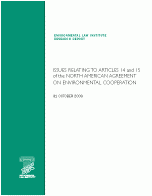
Issues Relating to Articles 14 and 15 of the North American Agreement on Environmental Cooperation analyzes recent Commission on Environmental Cooperation (CEC) Council resolutions that limit public review and hinder the citizen submissions process of the North American Agreement on Environmental Cooperation. The report finds that, by limiting the scope of investigation in each of the records examined, the Council jeopardized the ability of the citizen submitters to fully expose the controversy at issue.
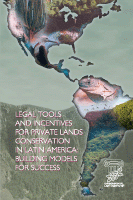
Click here to purchase this book on CD-ROM
Jean W. Hocker
ConServCo / Conservation Service Company, LLC
former President, Land Trust Alliance